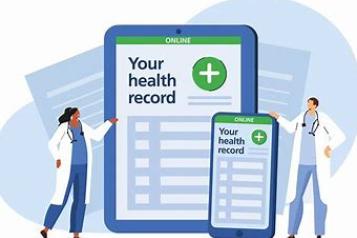Accessible Information Standard – Findings from our Freedom of Information Requests

Background
Healthwatch England contacted over 220 NHS providers, including acute, community, mental health and ambulance trusts, to find out:
- Whether trusts complied with the standard;
- Whether they deliver the standard consistently.
Just under 150 trusts replied though some said that exemptions in the FOI meant that they didn’t have to answer key questions about their compliance with the standard. The data below is based on replies from 139 trusts.
Key findings
- Only a third, 35%, of the NHS trusts that responded to our FOI requests fully comply with the legally-binding standard to help patients with sensory impairments and learning disabilities.
- Even where trusts reported having policy to follow the standard, many admitted they don’t always put it into practice or are still working on implementing it.
- Some of the biggest barriers to trusts providing information in accessible formats and recording patients’ communication needs include: lack of resources; lack of IT systems that would allow trusts to flag patients’ communication needs or share information with other NHS providers; and low staff awareness.
- Trusts don’t have standardised categories to log public complaints about healthcare communication. As a result, it is not possible to tell how many people complain about receiving information in formats they cannot access.
Closer look
Requirement
The Accessible Information Standard requires that services ask people if they have any information or communication needs and how to meet their needs.
What trusts told Heathwatch England:
- Just over half, 53%, of trusts reported that they ask patients about accessible information needs at the point of first contact.
- 17% of trusts reported that they would always ask at the point of registration. However, they book in most patients through the national e-referral system, General Practictioners (GPs), or other services. They would only have information on their communication needs if the referral included this.
- One in 14, seven per cent, of trusts stated lack of standardised systems to ask patients about communication needs. Those trusts said they have leaflets and posters to encourage people to flag their conditions. The onus, however, is on people to request to have their communication needs recorded.
- 23% of trusts answered ‘no’ or weren’t clear. Some trusts admitted that they have policies to support collection, but they do not always follow them. Several stated they are working towards compliance.
Requirement
The Accessible Information Standard requires that services highlight or flag the person’s file or notes, so it is clear that they have information or communication needs and how to meet those needs.
What trusts told Heathwatch England:
- Three quarters, 74%, of trusts reported that they always flag patients’ communication needs on their files or notes. However, this does not imply that trusts fully comply with the Standard, as their method of ascertaining needs may be partial, e.g. relying on staff to ask users at appointment rather than at the point of registration, or relying on information given at the point of referral.
- 10% of trusts said they didn’t always flag it, as their IT systems do not fully comply.
- 16% of trusts answered ‘no’ or weren’t clear.
Requirement
The Accessible Information Standard requires that services share information about people’s information and communication needs with other NHS and adult social care providers when they have consent or permission to do so.
What trusts told Heathwatch England:
- 57% of trusts said they routinely share the information with other healthcare providers when consent is given.
- 39% said they didn’t meet this requirement or provided unclear answers. Most of those who answered ‘no’ said it was due to their online systems not supporting onward sharing of information.
- Four per cent of trusts reported routinely sharing the information on a case-by-case basis only.
Additional questions
Healthwatch England asked NHS trusts whether they have undertaken any audits to assess their compliance against the Standard or the provision of accessible information generally in the last three full financial years (2020/21, 2019/20 and 2018/19).
What trusts told Heathwatch England:
- 21% said they had undertaken formal audits and provided us with full results.
- 15% reported they had not run official audits but cited informal reviews flagging the needs of people the AIS applies to.
- 63% of trusts answered ‘no’ or weren’t clear.
Healthwatch England asked NHS trusts how many complaints they have received from patients who hadn’t received information in accessible formats in the last three full financial years (2020/21, 2019/20 and 2018/19)?
What trusts told Heathwatch England:
- Two thirds, 66%, of trusts said they didn’t receive any patient complaints about communication formats.
- 26% of trusts said Patient Advice and Liaison Service (PALS) resolved patients’ complaints.
- Three per cent reported logging up to 10 complaints; three per cent logged over ten complaints.
- Most trusts who responded to this question admitted that they don’t have a standardised category for logging complaints related to accessible information. As a result, it is difficult to assess the number of complaints on this topic and its scale.
Healthwatch England want to support the NHS, health and care providers and medical professionals in meeting the Accessible Information Standard. They have set out several recommendations to meet people’s communication needs and improve access.
Downloads
This information is also available in Easy Read.
If you need this information in a different format, please email enquiries@healthwatch.co.uk or call 030000 68 3000.


